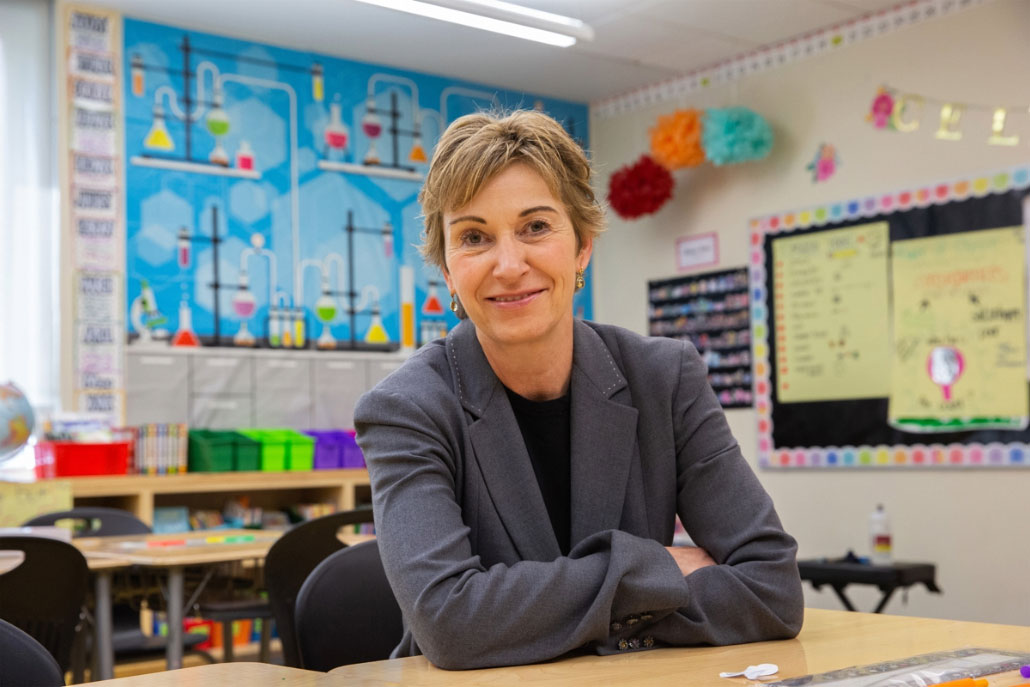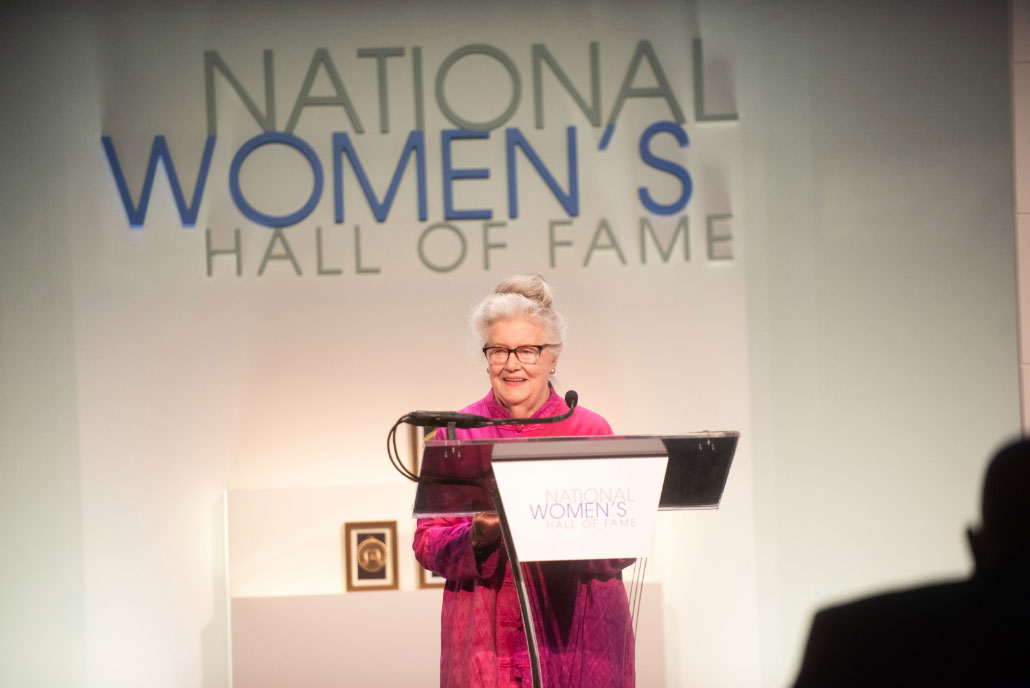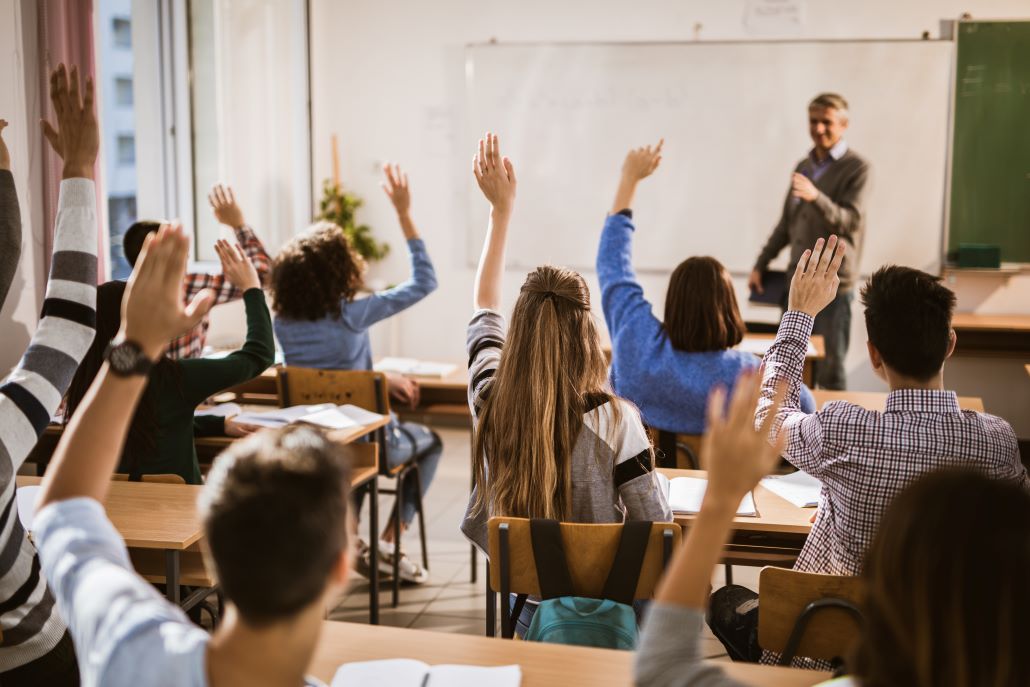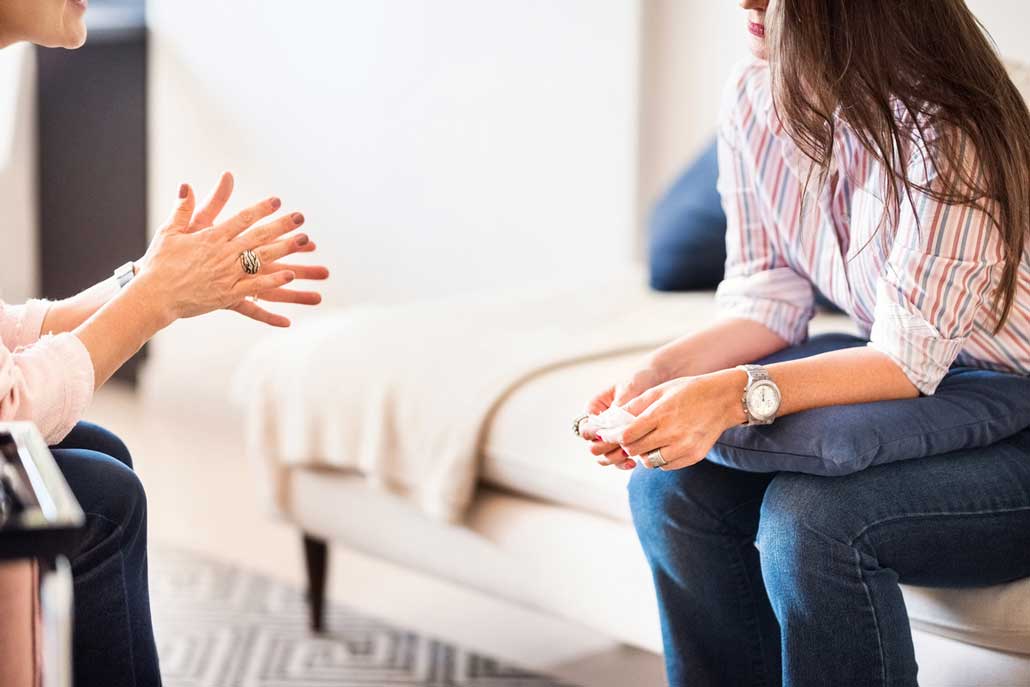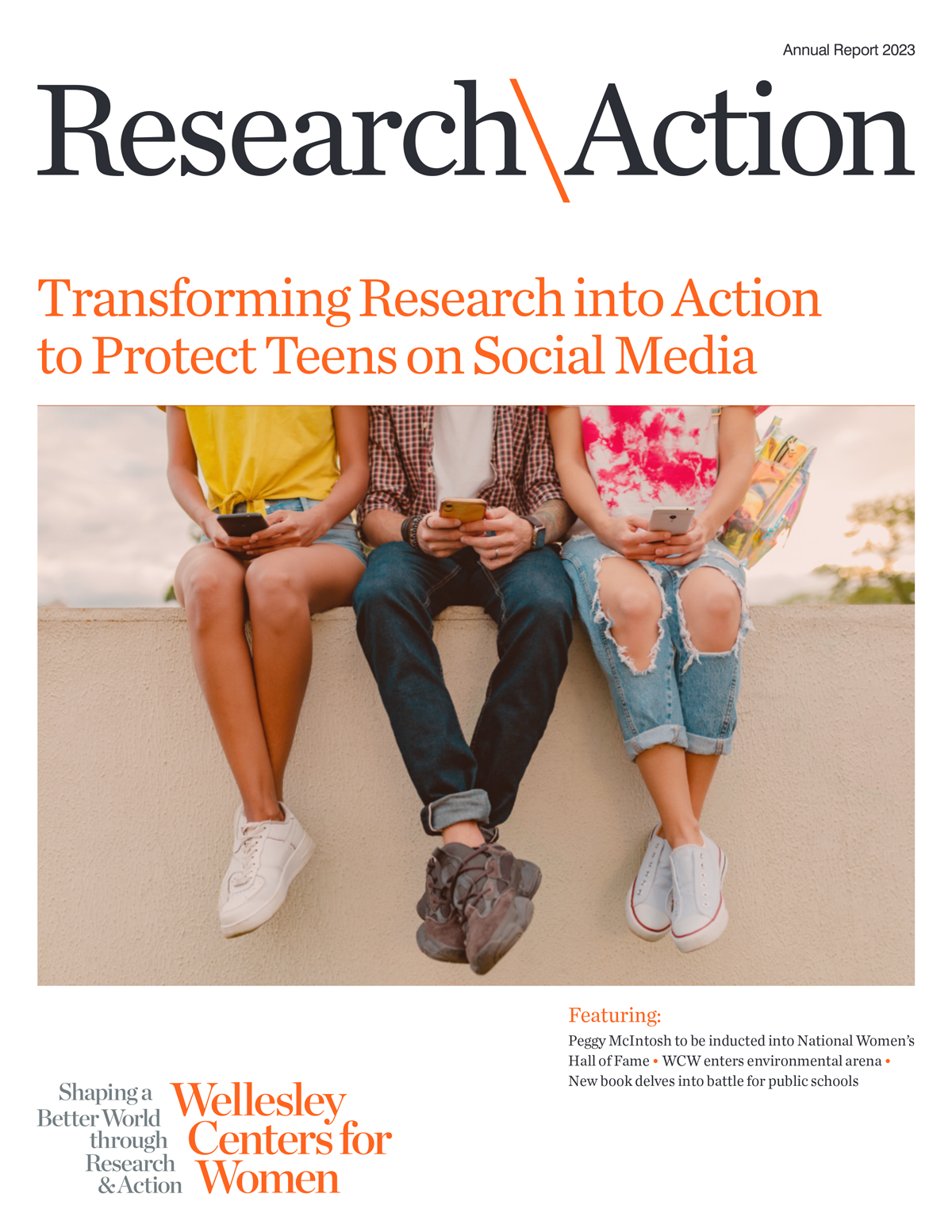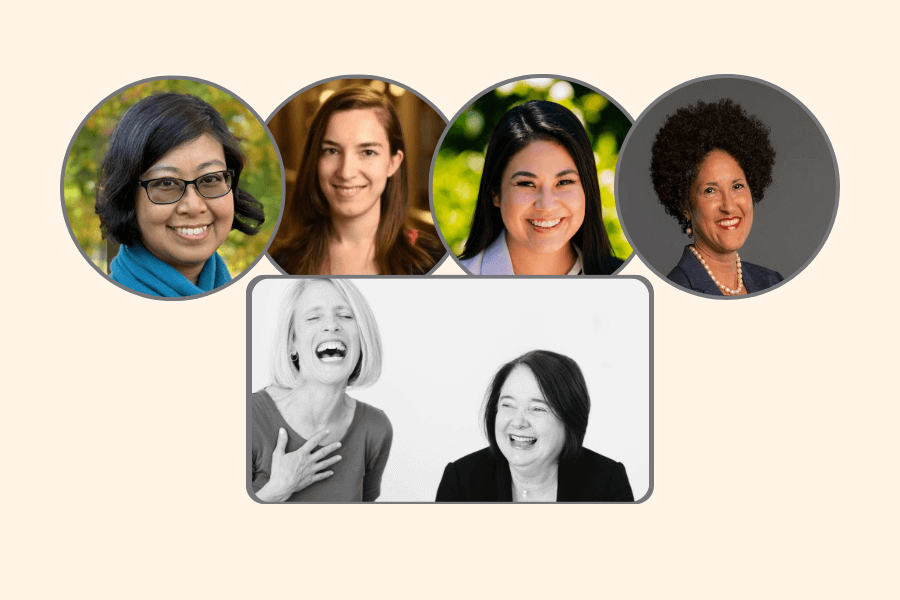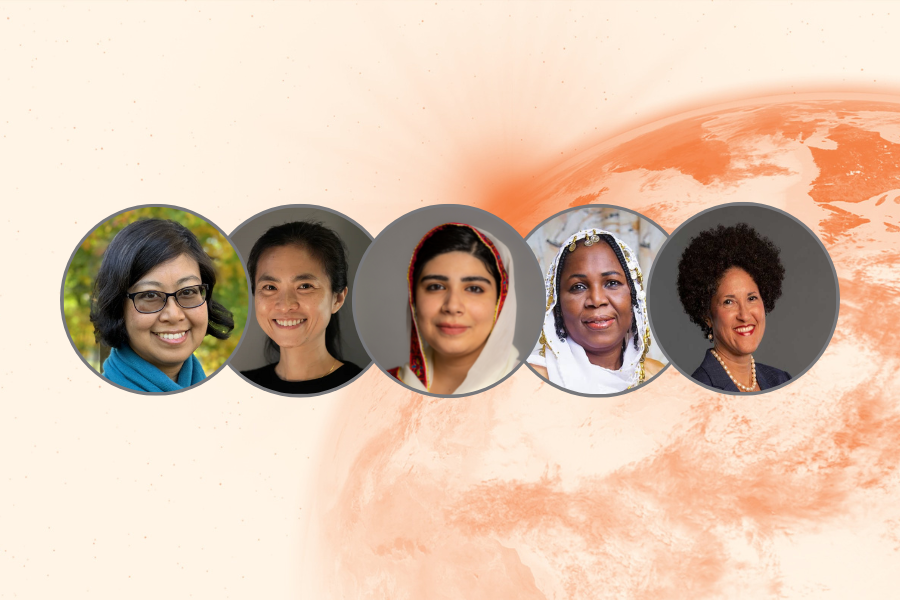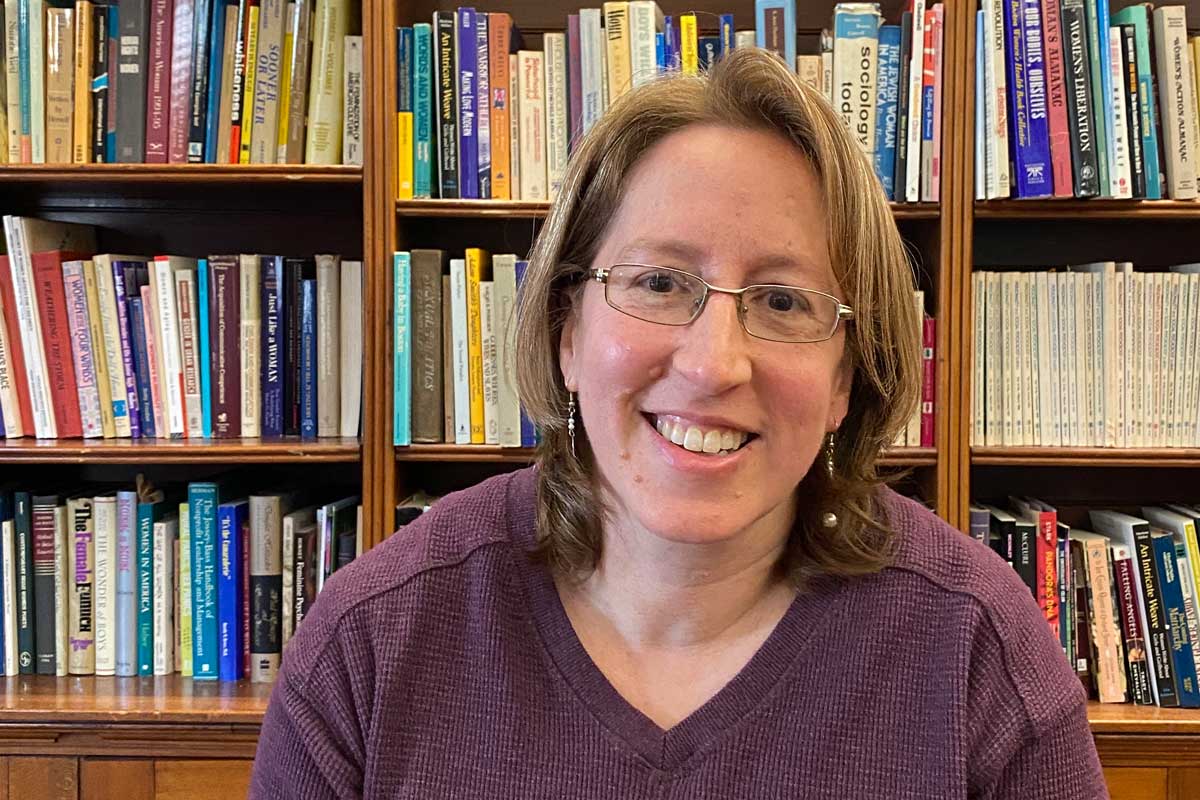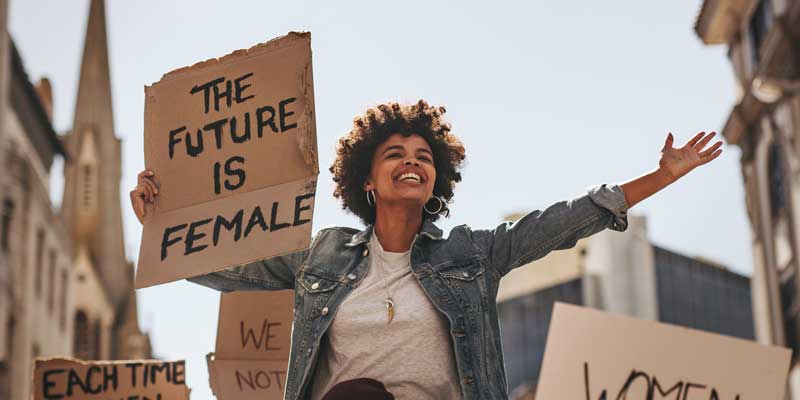
Women and Children: The Human Rights Relationship - Asia
Messages from Women Leaders
![]() Radhika Coomaraswamy- UN Under Secretary General, Special Representative for Children and Armed Conflict
Radhika Coomaraswamy- UN Under Secretary General, Special Representative for Children and Armed Conflict
![]() Saisuree Chutikul- CEDAW Committee member and former Vice-Chair of the UN Committee on the Rights of the Child
Saisuree Chutikul- CEDAW Committee member and former Vice-Chair of the UN Committee on the Rights of the Child
![]() Hina Jilani- Special Representative of the Secretary General on Human Rights Defenders and Member of the United Nations International Commission of Inquiry on Darfur
Hina Jilani- Special Representative of the Secretary General on Human Rights Defenders and Member of the United Nations International Commission of Inquiry on Darfur
Message from Under Secretary Radhika Coomaraswamy
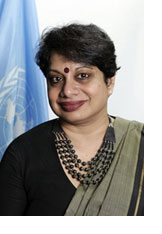 I am delighted to send a message of good wishes to the participants of the conference Women and Children: The Human Rights Relationship and the important research and action that will flow from this milestone conference.
I am delighted to send a message of good wishes to the participants of the conference Women and Children: The Human Rights Relationship and the important research and action that will flow from this milestone conference.
My own work as the Special Rapporteur of Violence against Women and the Special Representative of the Secretary General for Children and Armed Conflict has shed new insights into the way in which gender-based discrimination begins in childhood and is part of the continuum of gender- specific disadvantage and violence that runs through women’s lives. Women’s rights violations are often a manifestation of the way in which girls are devalued even before birth.
As former Special Rapporteur on Violence against Women, I have maintained that while the abuse of children in the form of physical, psychological and sexual violence is perpetrated against both boys and girls, there are gender dimensions to child abuse.1 The nexus between woman-battering and child abuse has been well established by research which shows that in families where battering occurs children are more vulnerable to be abused, by either their mothers' attacker or by their mothers and are often in danger by being present in situations of violence. The psychological and emotional impact of violence in the home on children can manifest in severe childhood and adult emotional and behavioural problems. The lack of resources to serve women victims of violence often impacts the child negatively. For example, space restrictions in domestic violence shelters often force women to choose between abandoning their children and leaving them in imminent peril to seeking refuge from a dangerous relationship.
A disproportionate number of children living in the streets are made up of children from homes plagued with violence. Running away from a violent environment children are often threatened with increased violence and sexual exploitation in the streets. There is also well documented research that connects violent behavior to childhood experience and exposure to domestic violence. Childhood experiences with domestic violence, specifically woman-battering, have been found to be a significant determinant of adult personal crimes including gender specific crimes.
Gender discrimination begins in childhood or even well before the birth of a child. “Son preference” or the discriminatory preference for male children often results in sex selective abortion, infanticide and neglect girl children. Son preference also results in violence against the mother for giving birth to a girl child as well as the abuse and neglect of the girl child. Gender biased traditional practices affect the health of both women and children and result in inequity in food distribution and in access to health, education, information and opportunities.2
As the Special Representative for the Secretary General for Children and Armed Conflict, I have seen the devastating consequences of conflict on women and children. The girl child remains especially vulnerable in situations of armed conflict and is abused in multiple ways. In this context, the application of international human rights standards including the CEDAW, the CRC and its Optional Protocol are of particular urgency.
This conference brings to the fore these critical issues that are at the intersection of women’s and children’s rights and examines them in a framework of gender equality. This conference is also a celebration of the work of scholars like Savitri Goonesekere who sparked the development of an important discourse on the sometimes complicated but always important relationship between women’s and child rights. I congratulate the partnership between UNICEF and the Wellesley Centers for Women for taking this agenda forward by convening an Asian regional conference to take steps to transform these conceptual intersections into strategic action.
1Report of the Special Rapporteur on violence against women, its causes and consequences, Ms. Radhika Coomaraswamy, submitted in accordance
with Commission on Human Rights resolution 1995/85
2 Report of the Special Rapporteur on violence against women, its causes and consequences, Ms. Radhika Coomaraswamy, on trafficking in women, women’s migration and violence against women, submitted in accordance with Commission on Human Rights resolution 1997/44; E/CN.4/2000/68 29 February 2000
Biographical note: Radhika Coomaraswamy is Under-Secretary-General, Special Representative for Children and Armed Conflict. In this capacity, she serves as a powerful voice and independent advocate to build awareness and give prominence to the rights and protection of boys and girls affected by armed conflict. Ms. Coomaraswamy, a lawyer by training and formerly the Chairperson of the Sri Lanka Human Rights Commission, is an internationally known human rights advocate who has done outstanding work as Special Rapporteur on Violence against Women (1994-2003). In her reports to the United Nations Commission on Human Rights, she has written on violence in the family, violence in the community, violence against women during armed conflict and the problem of international trafficking. A strong advocate on women’s rights, she has intervened on behalf of countless women throughout the world seeking clarification from Governments in cases involving violence against women. Ms. Coomaraswamy was appointed Chairperson of the Sri Lanka Human Rights Commission in May 2003. She was also a director of the International Centre for Ethnic Studies in Sri Lanka, leading research projects in the field of ethnicity, women and human rights. She has served as a member of the Global Faculty of the New York University School of Law. She has published widely, including two books on constitutional law and numerous articles on ethnic studies and the status of women. Ms. Coomaraswamy has won several awards including the International Law Award of the American Bar association, and the Human Rights Award of the International Human Rights Law Group. In November 2005, in recognition of her service to the country and the world, the President of Sri Lanka conferred on her the title of “Deshamanya”. Source:: http://www.un.org/children/conflict/english/radhikacoomarasw39.html
Welcome Message from Saisuree Chutikul
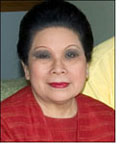 I would like to extend a very warm welcome to the participants and observers attending the Asia Regional Conference on Women and Children: The Human Rights Relationships, organized by UNICEF and the Wellesley Center for Women.
I would like to extend a very warm welcome to the participants and observers attending the Asia Regional Conference on Women and Children: The Human Rights Relationships, organized by UNICEF and the Wellesley Center for Women.
The central focus of the Conference is to ensure that existing and new ideas and concepts on the CRC-CEDAW human rights linkage are translated into dynamic action in which the synergies created by effective implementation are of further benefit to children and women.
The working paper, prepared by Dr. Savitri Goonesekere and Dr. Rangita de Silva-de Alwis, is an excellent document. It echoes and reflects many of the tasks ahead and crystallizes the issues that must receive more attention.
Some challenges that need further deliberation include:
- Within the CRC and the CEDAW Committees, while we are already practicing some new and innovative approaches, we need to consider further collaborative work and cross referencing on, for instance, concluding observations and their follow-up, general comments, constructive dialogue with States Parties, harmonized and treaty–specific guidelines for reporting.
- In addition to specific “Human Rights instruments,” linkages with other important instruments such as ILO 138, ILO 182, and the UN “Palermo Protocol,” must be made.
- We need to encourage other regional bodies to take a similar journey with us, e.g., regional bodies of the UN, specialized agencies, international organizations, ASEAN, Mekong Sub-Region mechanisms, but how can this be done? How will these bodies become more fully engaged with us in promoting CRC-CEDAW linkage and protecting the rights of children and women?
- Human Rights Relationships among various mechanisms at the national and local levels are often fragmented and specific ministries or divisions work almost exclusively within their own mandate, for example for women, for children, for labor, for health, for education, etc. How can followup action facilitate better communication and integration?
- There is often a disconnection between state agencies and National Human Rights Institutions; indeed some NHRI’s also have internal sectoral divisions which do not coordinate well. What actions or mechanisms can be recommended to bridge such barriers?
I sincerely hope that the outcome of this Conference will contribute significantly to the advancement of the rights of children and women, and that we will continue actively to ensure that concrete actions and programs are carried out to achieve the realization of these rights.
Biographical note:Saisuree Chutikul was Vice-Chair of the UN Committee on the Rights of the Child and currently a CEDAW Committee member. She is one of the world’s leading voices in the fight against human trafficking. She has worked at the highest levels as a legislator and government official to create innovative models to bring government and NGO’s together to stop the modern day slavery that afflicts her country. As a Cabinet minister in Thailand (1991-1992), she revised Thai laws on Nationality to allow children of Thai mothers and foreign fathers to have Thai citizenships automatically, to increase maternity leave to 90 days with full pay, to allow children without birth or house registration to enroll in schools and to create stricter penalties against proprietors, pimps, and parents who send children into prostitution. As a Senator (1996-2000) she worked with the Thai police to set up units for protection of women and children and revised Labor Law prohibiting sexual harassment and increasing penalty for employment of child labor. As a longtime member of the United Nations Commission on the Status of Women (1989-2000), she was an untiring advocate for girls at risk for prostitution and forced labor. She was instrumental in developing the Thai National Committee on Combating Trafficking in Women and Children established in 1994 and has been a leader in launching a national plan to combat human trafficking, including the recovery and reintegration of women into society; the safe repatriation of migrant workers lured into traffickers’ web; and the prosecution of criminal networks. She has crossed the border to work with the Cambodian government to develop a memorandum of understanding between the two countries to combat trafficking. She is currently the Chair of the Committee revising Thai laws in compliance with the Constitution and the CRC. She serves on the Board of Directors of a number of organizations supporting women and children including World Vision. Among her many awards, she was awarded the Vital Voices Humanitarian Award.
Message from Hina Jilani, Special Representative of the Secretary General on Human Rights Defenders and Member of the United Nations International Commission of Inquiry on Darfur
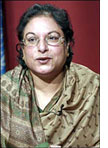 I would like to extend my very best wishes to the UNICEF/ Wellesley Centers for Women conference on Women and Children: The Human Rights Relationship.
I would like to extend my very best wishes to the UNICEF/ Wellesley Centers for Women conference on Women and Children: The Human Rights Relationship.
This conference brings to focus the intersections of rights and the way in which these linkages offer us new possibilities for action. My own mandate as the Special Representative of the Secretary General on Human Rights Defenders calls upon me to examine the status of human rights defenders and to improve their protection. In this role I see the moral imperative for connecting the work of different human rights defenders and their interrelated agendas. I also see the conceptual linkages between the issues of egregious human rights violations and the way in which the sale of children; child labour; trafficking in women and children; violence against women, children and defenders; and extreme poverty often overlap and interconnect.
My work has highlighted that women human rights defenders are often the bulwark against erosions to democracy, good governance, rule of law, and rights enforcement. At the same time, they are also doubly vulnerable to attack because of their gender and the critical threat they pose to extremist and fundamentalist forces in the community. I have also stressed the immediate need to harness the synergy and power of international human rights treaties and mechanisms to protect human rights defenders. In this effort, this conference which brings together leading women and child rights experts offers fresh opportunities to support some of my own goals as a pioneering human rights defender and Special Representative on Human Rights Defenders.
Biographical note: Hina Jilani is a preeminent lawyer and human-rights activist in Pakistan. She is currently the Secretary-General of the Human Rights Commission of Pakistan and was the first to be appointed to this position.. In addition, she is also Special Representative of the UN Secretary-General on the situation of Human Rights Defenders. She and her highly respected sister, Asma Jahangir, founded Pakistan's first all-female legal practice in 1980. The sisters were also founders of the Women's Action Forum, a pressure group campaigning against Pakistan's discriminatory legislation, most notably against the Evidence Law, where the value of a woman's testimony was reduced to half that of a male testimony, and the Hadood Ordinances, where victims of rape had to prove their innocence or else face punishment themselves. In 2006, she was appointed to the UN International Fact-Finding Commission on Darfur.

